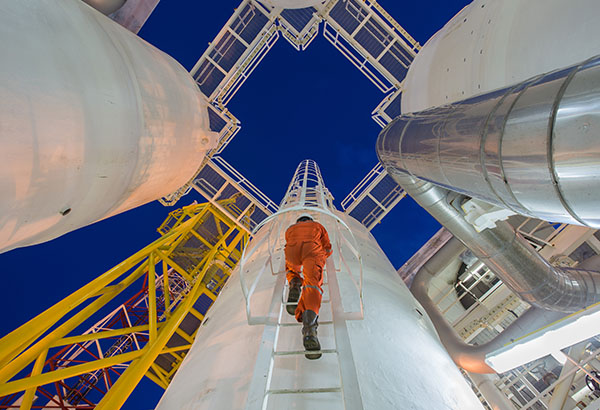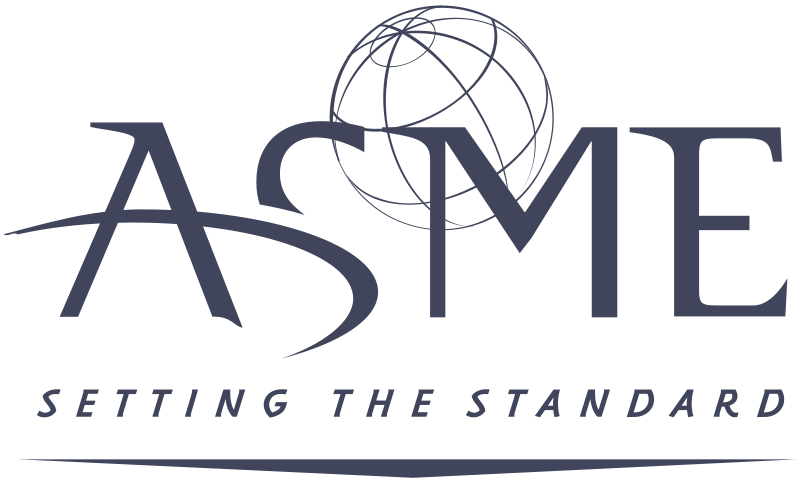
An Intensive 5-day Training Course
Fitness-For-Service, Remaining Life Assessment
& Repair of Pressure Equipment & Piping
(API-579/ASME FFS-1 & PCC-2 Standards)
Scheduled Dates
Classroom
| 01 - 05 Jul 2024 | Kuala Lumpur - Malaysia | $5,950 | RESERVE A SEAT |
| 18 - 22 Nov 2024 | London - UK | $5,950 | RESERVE A SEAT |
| 20 - 24 Jan 2025 | Dubai - UAE | $5,950 | RESERVE A SEAT |
Online
| 01 - 05 Jul 2024 | Online | $3,950 | RESERVE A SEAT |
Are the scheduled dates matching with your needs?
We provide a wider range of training options. Tailored and customized, we can deliver your organization’s training needs anytime, anywhere.
Why Choose this Training Course?
This PetroKnowledge training course clarifies the Fitness-for-Service concepts and technologies and provides training on the application of API 579-1/ASME FFS-1, a standard jointly published by the American Petroleum Institute (API) and the American Society for Mechanical Engineers (ASME) that covers a wide range of flaw types and damage mechanisms. It is intended to supplement and augment the requirements in API 510, API 570 and API 653 to ensure safety and reliability of plant equipment.
The general road map and procedures for flaw evaluation, acceptance criteria, calculation of remaining life, and the three levels of evaluation will be explained. Level 1 procedures for evaluation of the various flaws covered in Parts 3 through 13 are explained and demonstrated by worked example problems. Additionally, Level 2 procedures are discussed and some level 2 worked example problems are demonstrated. An introduction to level 3 analyses methods and acceptance criteria is covered. Stresses of various categories and failure modes associated with each are explained. Basic design of pressure vessels, piping and storage tanks including the relevant Code design formulas for calculating required thickness are presented and demonstrated by worked examples problems.
This PetroKnowledge training course emphasizes that any FFS assessment must not conflict with Code and regulatory requirements and ensures that basic engineering principles are adhered to and the intent of the reference publication is understood and followed.
What are the Goals?
The participants will learn to apply the rules of the API/ASME 579 standard "Fitness-for-Service" to recognize degradation mechanisms, evaluate the integrity and remaining life of pressure vessels, tanks, piping systems and pipelines, make cost effective run-or-repair decisions, and select the appropriate repair options. In this PetroKnowledge training course you will learn:
- Fundamental principles of fitness-for-service, their practical application through presentations, worked examples, case studies, and a step-by-step evaluation process for each type of degradation mechanism
- Fundamental principles of component integrity, application of the ASME code rules, material properties of strength and toughness, and the introduction to stress and fracture mechanics
- A review of degradation mechanisms and the application of API 579 to brittle fracture, general metal loss, local wall thinning, pitting, blisters and laminations, mechanical defects (dents, gouges, misalignment, and distortion), crack-like flaws (stress corrosion cracking, weld flaws, crack-like defects), fatigue, HIC and SOHIC and fire damage
Who is this Training Course for?
This PetroKnowledge training course provides a wide understanding and deeper appreciation of fitness-for service, remaining life assessment and repair of pressure equipment and piping for:
- Integrity Assessment Engineers
- Operations Engineers
- Maintenance Engineers
- Maintenance Supervisors
- Facility Integrity Supervisors
- Corrosion Engineers
- Corrosion Specialists
- Site Inspection Engineers
- Piping Engineers
- Mechanical Engineers
- Plant Managers
- Plant Engineers
- Project Engineers
- Engineers who are responsible for maintaining the integrity of process plant equipment and piping
How will this Training Course be Presented?
Participants to this PetroKnowledge training course will receive a thorough training on the subjects covered by the seminar outline with the Tutor utilising a variety of proven adult learning teaching and facilitation techniques. Seminar methodology includes This is an intensive and comprehensive course in which participants are drawn into active participation in discussions and example solutions to enhance learning.
The emphasis in the course will be on the explanation of all technical phenomena and providing answers to problems that are encountered in everyday industrial practice related to maintenance, repair and alterations of process equipment. Each learning point will be reinforced with practical examples. There will be ample opportunities for active discussion and sharing professional experiences and exchange that will help solidify the gained knowledge. All course materials will be provided.
Organisational Impact
Optimization of process plant operation, including equipment efficiency, energy consumption and maintenance management, is vital to the budgetary success of the organisation. On completion of this seminar the delegates will be able to critically analyse the methodologies employed within the organisation and instigate improvements where required.
Personal Impact
Participants will obtain all skills that are essential for assessing pressure vessels, piping and tanks against all known degradation mechanisms from first approach at field Level up to expertise level giving them extreme confidence on their recommendation through professionally written reports.
Daily Agenda
Day One: Fitness-For-Service Technology
- Overview of API 579 Contents, Objectives and Applications
- How to apply API 579 for cost-effective run-or-repair decisions
- Fitness-for-Service assessment procedure
- An overview of what is new in the latest release
- FFS Assessment Methodology and Procedure
- Structure of the Standard - Road map for Parts 3 through 13 of the FFS Standard
- The FFS eight-step procedure
- Examples of the major parts
Day Two: Inspection and Fitness-For-Service
- Real function of inspection
- Inspection reliability and effectiveness
- Nondestructive testing techniques - PT, VT, MT, ET, UT, RT, AE
- Fundamentals of Design and Construction of Pressure Vessels, Storage Tanks and Piping
- Annex A - Thickness, MAWP and stress equations for a FFS assessment
- Fitness-for-Service and Remaining Life (cont’d) Brittle Fracture and Cryogenic Service
- Assessment of General Wall Thinning
- Assessment of Local Thin Areas and B31G for Pipelines
- Assessment of Pitting Corrosion
- Fabrication Defects and in-Service Degradation of Pressure Equipment and Piping
- Annex G - Damage Mechanisms
Day Three: FFS Assessment of Brittle Fracture and Metal Loss
- Assessment of Existing Equipment for Brittle Fracture
- Overview of brittle fracture
- Data requirements
- Assessment techniques
- Acceptance criteria
- Worked examples
- Overview of Corrosion, Erosion and Pitting
- Assessment of General Metal Loss
- Data requirements
- Assessment techniques
- Acceptance criteria
- Worked examples
- Assessment of Local Metal Loss
- Data requirements
- Assessment techniques
- Acceptance criteria
- Worked examples Assessment techniques laminations-Distortion-cracks
Day Four: Assessment of Pitting Corrosion
- Data requirements
- Assessment techniques
- Acceptance criteria
- Worked example
- Fitness For Service Assessment of Corroded Pipelines
- ASME B31G
- RSTRENG
- KAPA
- Worked Example - Blisters, Local and Mechanical Damage
- Assessment of Hydrogen Blisters and Hydrogen Damage Associated With HIC and SOHIC
- Data requirements
- Assessment techniques
- Acceptance criteria
- Worked examples Assessment techniques creep-fire damage-fatigue
Day Five: Assessment of Weld Misalignment and Shell Distortions
- Data requirements
- Assessment techniques
- Acceptance criteria
- Worked example
- Introduction to Fracture Mechanics
- Assessment of Crack-Like Flaws
- Data requirements
- Assessment techniques
- Acceptance criteria
- Worked examples
- Creep, Fire and Mechanical Damage
- Assessment of Components Operating in the Creep Range
- Data requirements
- Assessment techniques
- Acceptance criteria
- Worked example
- Assessment of Fire Damage
- Data requirements
- Assessment techniques
- Acceptance criteria
- Case study
- Assessment of Dents, Gouges, and Dent-Gouge Combinations
- Data requirements
- Assessment techniques
- Acceptance criteria
- Worked example
- Assessment of Laminations
- Data requirements
- Assessment techniques
- Acceptance criteria
- Worked example Repair methodologies
- Repair Techniques
- New Developments in Repair Standards
- Permanent and Temporary Repairs
- Overview of All Repair Techniques
- Selection of the Right Repair
- Contents and Structure of the Repair Plan
- Welding on In-Service Equipment
- Welded Repairs
- Non-Welded Repairs
Certificate
- On successful completion of this Training Course / Online Training Course, a PetroKnowledge Certificate / E-Certificate will be awarded to the delegates.
Accreditation

With the vast and in-depth coverage of the Oil & Gas and Petroleum Industry, it is essential that International Codes and Standards are in place to preserve uniform operational practices across all organisations worldwide. In line with this, many international organisations have published several inspection codes and standards.
In order for Oil & Gas professionals to remain abreast in the innovations in technology and with the new & revised inspection methodologies and best practices, PetroKnowledge is pleased to offer American Society for Mechanical Engineers (ASME) training courses and seminars, that focuses on the understanding of the code objectives, intents, stated and implied requirements, as well as the mandatory, recommended and optional stipulations. The training courses also aim to impart the necessary knowledge and skills to prepare the participants before taking the required examinations and certifications.
In Association With

Our collaboration with The Energy Training Centre aims to provide the best training services and benefits for our valued clients.
Other Training Courses You Might Be Interested In
Frequently Asked Questions
- To register online through our website, please click “Enroll Now” on the course page, complete and submit the form. A confirmation e-mail and instructions will be sent to the participant’s e-mail.
- You may also get in touch with our Registration Team on
+971 50 981 7386 | +971 2 557 7389 or send an email to reg@petroknowledge.com
- Payments can be made in USD or UAE local currency AED (Arab Emirates Dirhams) either by Bank Transfer or by Credit Card. Our Bank Account details will be provided on the invoice.
- Course fees are payable upon booking unless a valid, authorized Purchase Order is provided and accepted.
- Invoices will be sent via email/courier to the ID/name and address provided.
- The course fee shall be settled prior to course start date. Corporate payments with existing payment policy shall be relayed to us in advance.
Upon successful registration online, enrolment on the respective training course will be confirmed by Registration Team by e-mail along with the invoice and joining instruction.
For corporate fees and group registration, please send your query to info@petroknowledge.com.
